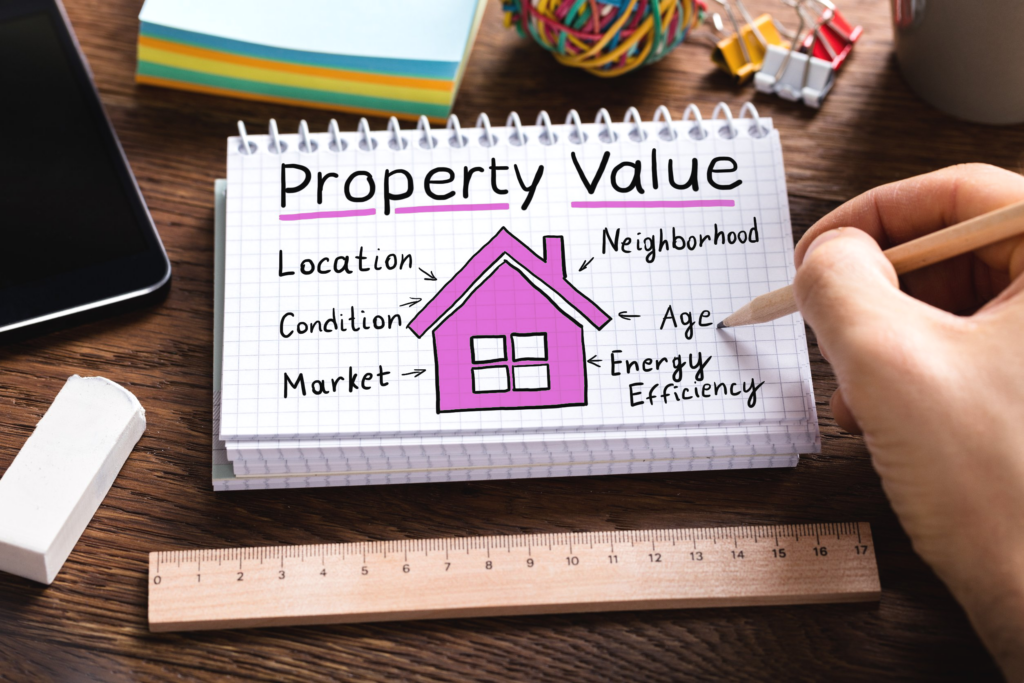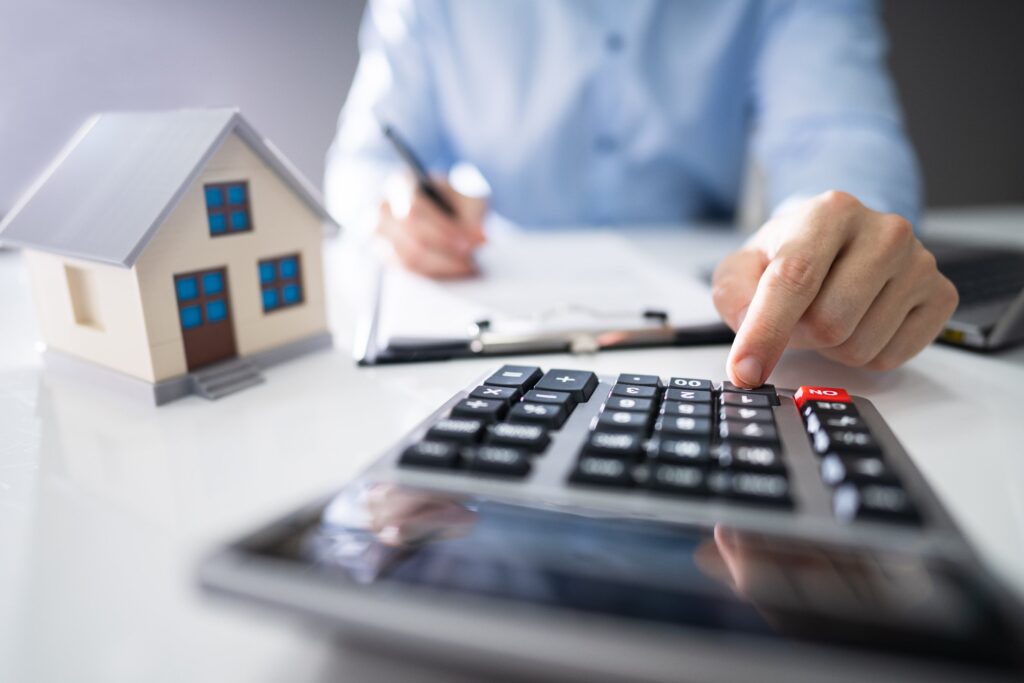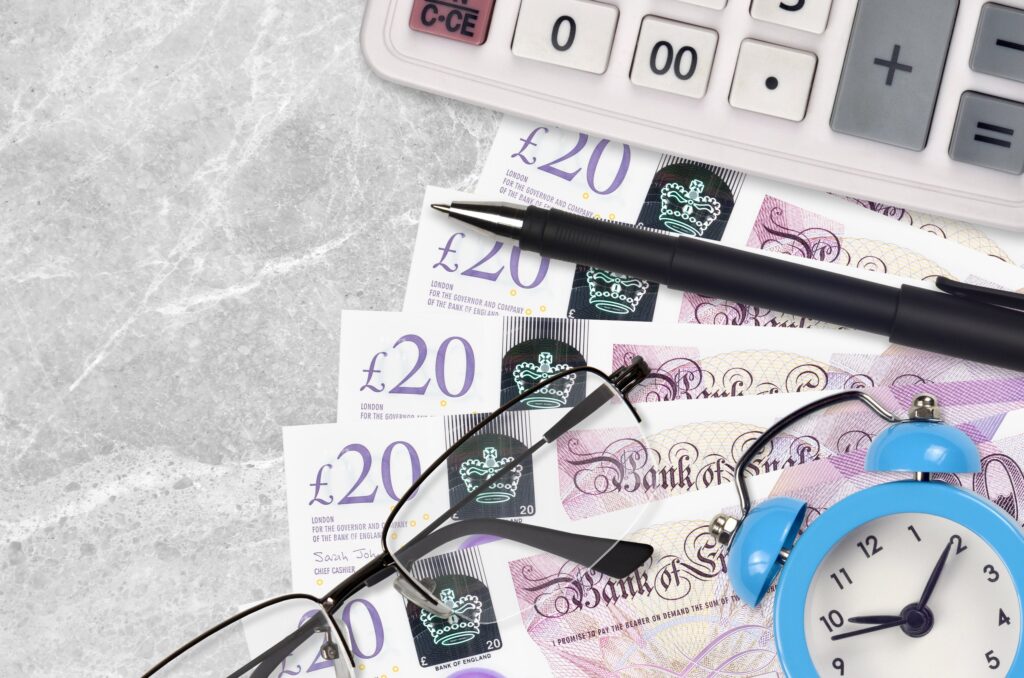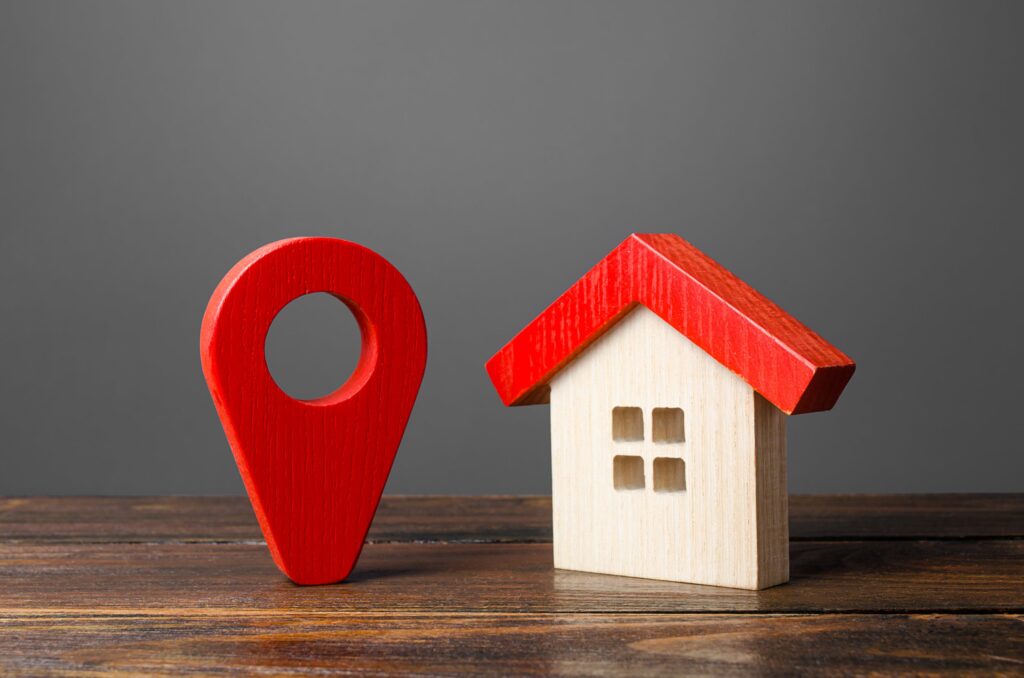
A property valuation is when a real estate owner gets a correct estimate of how much their property is worth at the time of the valuation. A myriad of factors affects the overall value of your property. To give a realistic appraisal, a professional valuer must consider all those factors and look at your real estate’s internal and external properties.
Since every real estate is unique, property valuation is not without its challenges. If you’ve ever been in a position to ask, “How much is my house worth?” then you probably know a little bit about the official appraisal process. If not, allow us to guide you through the many intricacies of property valuation.
Whether you’re looking to sell or buy, this knowledge is always valuable to new homeowners. Here’s everything you need to know about property valuation’s practical importance and applications. We’ll also explain the appraisal process, detailing the five different property valuation methods and how to prep for an appointment with a valuer.
What is the importance of property valuation?
As a real estate owner, you should have correct and up-to-date information on your property’s value. You never know when you’ll need this information. You may never use it, but you might also stumble upon your dream home and decide to sell your old one.
You can’t set a realistic price or agree on a certain price for buying your next real estate without getting a formal appraisal.
With these two scenarios, the importance of property valuation is nowhere near exhausted. The official appraisal is crucial for listing real estate, calculating property taxes, applying for mortgages, and qualifying for loans.
You’ll need a property valuation if you’re involved in a probate process. If you and your partner are getting a divorce, again, you’ll need a valuation.
What is the purpose of a house valuation?
Aside from providing necessary information to residential homeowners and their real estate agents, banks, insurance companies, and tax offices, a property valuation is also essential to businesses and professional investors. Appraisals are helpful to many different parties and in more situations than we can name, but they don’t always need to be official reports.
Common examples of how you can use a property valuation include the following.
Selling in an open market
Even though price and value are not the same things (for example, you can sell your house for a higher price than its worth), your real estate agent will still ask you to provide an appraisal report.
A property value is necessary for determining fair market value, which is an objective price that you may or may not choose to offer to the potential buyer of your real estate.
Calculating a property tax

If you are a first-time homeowner, you may or may not know that the law requires you to pay a property tax to your local or state government.
The amount you’ll have to pay depends on where your property is because real estate taxes vary from state to state. In any case, you’ll have to provide a formal assessment of your property value.
Applying for a mortgage
Whether you’re applying for a mortgage or getting a loan, your lender, bank, or credit union will require an official appraised report to determine the minimum loan-to-value ratio before they accept your application.
This ratio is usually lower than 80% of your property value, so it’s clear why you need to have accurate information on how much your house is worth.
Qualifying for insurance
A property value is necessary for calculating two types of insurance – replacement cost and cash insurance. If you have any of these types of insurance, another technical term you should know is “deprecation,” which is a property’s decline in value over time.
Your insurance company needs an appraisal report to determine depreciation and reimburse you.
Investing in your future
When you’re buying a home, you’re investing in your future. Real estate is not an asset that you acquire every day. For most people, buying a house is a once-in-a-lifetime event.
Getting an appraisal report on your investment is responsible, especially since it helps determine the property’s potential future value and expected depreciation over time.
What valuation methods are there?
We’ve mentioned earlier that a unique combination of assets, properties, and factors affects the value of every property.
To provide an accurate appraisal, a property valuer must thoroughly examine your real estate and collect as much relevant data as possible. That includes internal and external data, such as the property’s location, market, and amenities.
Professionals use five different methods of property valuation.
-
Sales comparison
The so-called sales comparison is the most prevalent method of property valuation – and the simplest one. It’s when a professional valuer or your real estate agent compares the value of your home to the value of a similar property in the same neighbourhood. For sales comparison, valuers analyse houses of the same size and with similar properties.
-
Cost approach
The cost approach involves slightly more complicated maths than sales comparison. Using this method, a professional valuer calculates the property value by determining the cost of replacing your house with its replica on the same spot. The question is, “How much would it cost to build your house exactly the way it is?”
The established formula goes like this:
property value = replacement cost – depreciation value + the value of the site
-
Income capitalisation
While the sales comparison and cost approach methods help determine the residential house value, the income approach is more common for appraising investment properties.
For this equation, professionals consider future market conditions, rent, and expenses, in addition to the projected income the property is expected to produce in a given timeframe.
-
Gross rent multiplier
The gross rent multiplier is another approach for appraising property value for real estate investors. Like the income capitalisation method, this one considers future expenses but focuses more on rent.
Because you can predict rent with less uncertainty than factors like market conditions, the gross rent multiplier usually provides a more accurate appraisal:
property value = (purchase price / annual rental income) – expenses
-
Cash-on-cash return

Investors rely on the cash-on-cash return method (CoC) to help them choose the most profitable way to finance their investment – using cash or taking out a loan.Math-wise, this property valuation method is not particularly complicated to use. To get an appraisal, you need to divide the net operating income the property has generated by the total cash investment.
What is the house valuation process?
Depending on how you plan to use it, a certified valuer may or may not conduct a property valuation of your house. For example, most real estate agents won’t ask for an official appraisal report if you decide to sell your home. Realtors have enough experience and knowledge to provide an informal estimate of how much your house is worth.
However, if you’re considering borrowing against your property, your lender will require you to submit a property value report by a certified valuer. You’ll have to make an official property valuation appointment and undergo a formal appraisal process.
How does a property valuation appointment look?
Professional valuers, also known as chartered surveyors, specialise in providing accurate appraisals for various property types. When they come to your house for an official property valuation appointment, they examine the place just like a potential buyer. Typically, it doesn’t take much longer than an hour for a professional to inspect and appraise your house.
Later in this article, we’ll discuss the many factors that professional valuers consider during the property valuation appointment. To name a few, valuers usually inspect features like size, layout, amenities, and the general condition of the house.
External factors such as location and market are essential as well. A professional valuer chooses the best property valuation method, considering the type of real estate. Most valuers use the sales comparison and the cost approach for residential houses.
Can you have a professional property valuation online?

During the COVID-19 lockdowns, many professional valuers started offering online appraisals.
Conducting a property valuation via digital communication tools such as Skype was possible long before the pandemic. Still, it was mostly for situations where valuers were physically unable to visit the property, like with buildings still in construction.
Are online appraisals as accurate as traditional approaches? Frankly, no. The valuer should have first-hand experience with the property to estimate its value objectively.
Online appraisals focus on written descriptions and a limited view of the property, which is hardly enough to inspect all the necessary elements and provide a correct assessment.
Should you accept an appointment your lender makes?
Most lenders send partnering professional valuers to appraise your house when they need an official report. Should you trust those valuers? The answer is yes in most cases.
In fact, having an appointed professional appraise your house is a more convenient option. However, if you still want to make an appointment on your own, you have every right to do so.
What do valuers look at when valuing a house?

Let’s finally reveal the mystery behind the elements influencing appraisals now that you know how a typical property value appointment looks. Regardless of the approach and the type of real estate, valuers look at various internal, external, and general factors.
Internal factors
When a professional valuer comes to your house to determine its value, the first things they look for are the interior and the exterior of the property.
They consider the age, size, number of rooms, layout, amenities, and unique features such as wine cellars, utility rooms, etc. Valuers also inspect the structure’s quality and the house’s current condition.
External factors

The most important external factor is the location of your house. The valuer will consider the look and state of your neighbourhood – whether it has access to public transportation, quality schools, hospitals, parks, etc.
Crime rate is another critical factor that can lower your property’s value. The current state of the market and the local supply and demand are also vital.
General factors
Under general factors, valuers usually mean the broader context that may cause fluctuations in your property’s value in the foreseeable future. For example, these are global economic and social trends, governmental regulations, and even environmental conditions.
If your house is in a location with frequent heat waves or earthquakes, that will also affect its value.
Do I need to attend the house valuation?
You don’t have to be present at your house valuation, but it’s better if you are. As a homeowner, you are the best person to answer questions about your house.
For instance, the valuer will want to hear about any renovation projects, repairs, and defects your house has endured over the years. You can show them around and explain everything in detail.
Preparing your house for a property valuation appointment is also a good idea. If you want to raise its value, you might even want to renovate a couple of rooms and tidy up the exterior. If your house is in good condition, spring cleaning will do it justice.
Aside from that, you should prepare building plans, lease contracts, and other necessary documentation.
What happens after a property valuation?
A property valuation usually precedes a week-long assessment process, after which you should receive an official offer from your lender.
Your property value may be lower than you expect. In that case, you have the right to appeal the appraisal. You can challenge it with proof that it was wrong or make an appointment with an independent valuer.
Can I get a house valuation for free?
In the UK, an appraisal from a professional valuer may cost between £150 and £1,500. Luckily, you can get a property valuation for free in a few alternative ways.
Most homeowners who decide to sell or buy receive a free real estate agent valuation. Some lenders also appoint valuers for free, but they usually charge you for it along with your mortgage payments.
Online valuation tools are the only zero-cost alternative to pricey appraisals that come without fine print. There are many advantages of using a digital algorithm for a property valuation – these tools are easy to use, available to everyone, and free of charge. The best tools can provide a spot-on estimate of your property’s value according to your description.
Conclusion
Hopefully, we’ve answered all your questions about how a house valuation works. It is not the most entertaining subject, but it is a vital tool for building a better home.
Appraisals are a necessary part of every homeowner’s checklist. Estimating your house value will help you get your current expenses in order and make wise investment decisions in the future.